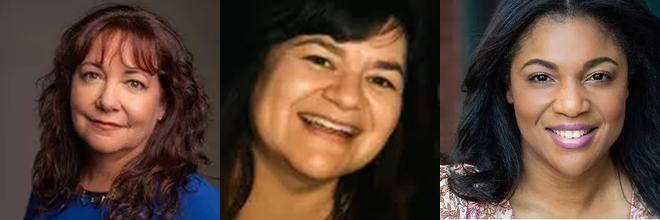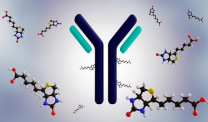Webinar Recap: Women With Mesothelioma
Awareness & ResearchWritten by Travis Rodgers | Edited by Amy Edel

We recently hosted Women With Mesothelioma: Real Talk With Survivors, an exclusive online live event. Licensed mental health counselor Dana Nolan and mesothelioma survivors Tamron Little and Priscilla Wayterra discussed challenges women experience on their mesothelioma journeys.
Priscilla was first diagnosed with breast cancer. She says she initially thought her prior treatment for breast cancer and stress explained the symptoms she was feeling. After several rounds of tests and imaging scans, a biopsy finally revealed she had peritoneal mesothelioma.
“The phone rang and it was the surgeon who had done the biopsy,” Priscilla shared. “And immediately after hearing his voice, I knew that it wasn’t good. Even the way he said it to me, I could tell he was shocked. He even said, ‘I asked the pathologist to double check, and this is what it is.’ Of course, I Googled it and it was just immediate fear. Because the stuff on Google isn’t good.”
Tamron shared that while the outlook for mesothelioma is generally poor and information about the disease can be frightening, she’s now 18 years cancer-free. She was diagnosed with peritoneal mesothelioma at age 21. She was still in college and pregnant with her first child at the time.
She was initially misdiagnosed after first noticing a growth in her abdomen during a routine ultrasound. Doctors thought Tamron might have a fibroid tumor.
“My obstetrician at the time said ‘I do believe it’s a fibroid tumor. I’m just going to give you some birth control and that should do the trick.’ A couple of months later, it didn’t do the trick. It actually grew,” Tamron recounted.
Licensed counselor Dana Nolan has been working with cancer patients for 30 years. As Priscilla and Tamron shared their personal firsthand accounts, Dana noted that the emotional impact and potential mental health effects following a mesothelioma diagnosis can be far-reaching.
Coping With the Emotional Toll of a Mesothelioma Diagnosis
Dana explained that fear and anxiety are probably the most common emotions that surface when first coping with a mesothelioma diagnosis. She added that as the reality of this new mesothelioma journey sinks in over time, there can be a wide range of emotions.
“I’ve never met anybody who doesn’t remember exactly where they werewhen their doctor told them ‘You have mesothelioma.’ They usually remember every detail about that conversation. It can be traumatic and they recall feeling in shock and emotionally numb for a little while.” Dana shared.
She said people can feel like everything is spinning emotionally. Dana added, “It’s kind of like 4 seasons in 1 day. It can be 40 emotions in 1 hour.”
Anger can be associated with mesothelioma because negligence is often the reason for someone’s asbestos exposure. Grief and guilt are also emotions many people with mesothelioma experience.
“We can grieve what mesothelioma does as it comes into our lives,” Dana said. “It makes you look at what though your life was going to be in the next 5 years, 10 years, 20 years and that mesothelioma make that look different. And you can grieve that.”
Dana explained, “Also guilt is a common feeling, but not guilt that you’ve done something wrong. And I say this as a woman, we can feel a little bit of guilt that the people we care about are now worried about us. Or that we’re going to be a potential burden to them. If we have been a caregiver to anyone, we may now have to be on the receiving end of that care and that can lead to some feelings.”
How to Share the News of Mesothelioma With Loved Ones
Sharing the news of a mesothelioma diagnosis with your family can be tough for many people. For some families, discussing serious health topics may be uncommon.
Tamron, for example, said she grew up in a family that didn’t share many details with children or even talk about cancer. She noted, “I was not allowed to go to funerals. If someone you knew died, then they said they just passed away and wouldn’t get into the nitty gritty of it all.”
So when the time came for her to share her mesothelioma diagnosis with her family, she tried to stay positive. Tamron recounted,“My grandmother would come to me and she would say, ‘Are you okay?’ But I would say, ‘I’m going to fight, and I’m my best advocate, and I’m going to find the right doctor no matter what it takes. I’m going to live for my son. I want my son to know who his mother is.’”
Dana suggested families tell children what is going on. She noted that avoiding explaining the situation could lead to issues later in life.
“They’re going to have trust issues because they’re going to find out,” Dana said. “They need to know their medical history as well. They need to know if mom or dad has had some kind of cancer.”
She said many resources for talking to children are available that can break things down for different age ranges. Dana explained there is no one-size-fits-all method for sharing the news with family members.
Finding Moments of Joy While Coping With Mesothelioma
Our panelists wanted to end the discussion highlighting things that bring them joy. Priscilla shared she was a caregiver for her mother who had a terminal disease. She said her time in that role taught her a lot.
“She taught me that no matter what you’re going through, we’re going to have a little bit of joy every day,” Priscilla recalled. “And she was a jokester and that’s always how we live our lives. So there was always a moment of joy. We can always find something to be joyful about. And that’s different than saying things are always good and always fine.”
Tamron noted, “Remember, if you have that glimmer of hope, that is all you need. And you will face challenges, but you can get through those challenges. And Priscilla and I are both testaments to that.”







